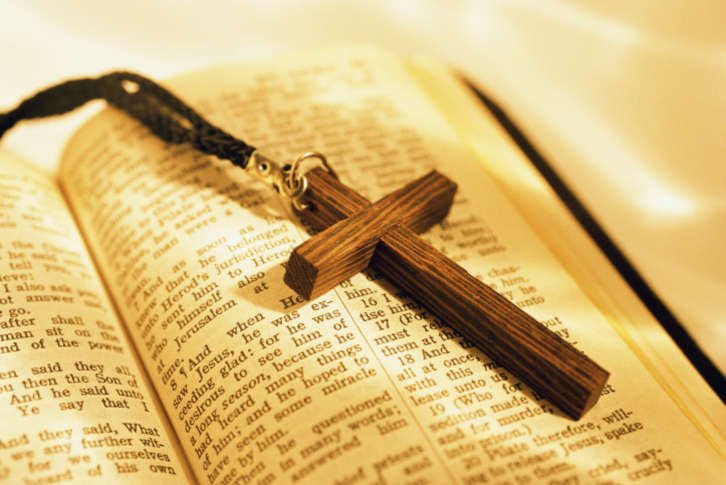
Christianity absolutely has political implications, which include justice, mercy and dignity for all.
By Nazarul Islam
Denouncing Christian Nationalism is ‘de rigueur’. In simple words ‘respectable’ or ‘genteel’. But what is it, really? Originally it was understood as conflation of Christian faith with national identity. But then it was expanded to include generic conservative religious political activism. Then it was expanded further to encompass any citation of Christianity in American history or the ongoing role of civil religion.
Christian Nationalists were originally hyper patriotic Evangelicals. But the ever widening definition now, whether the critics realize or not, includes liberal Mainline Protestants, black churches and Catholics, all of whom address public issues with faith language. Nearly all of Christianity and most religions assume God has purposes for nations. Some critics of an elusively defined Christian Nationalism seem to expect America to become France, with all religious language deemed inappropriate in public conversation.
This increasingly exacting expectation has prompted some Evangelicals to defend at least some forms of Christian Nationalism. After all, they say, shouldn’t Christians care about their nations and express themselves accordingly?
“Christian Nationalism” is probably not a term worth defending. Carefully defined, it can usefully describe disturbing misdirections of religion in national life. The fanatics who supportively “prayed” and brandished Christian symbols on behalf of the January 6 mob showcased destructive exploitation of Christian imagery. Some may be more accurately described as nativist folk religionists.
Others no doubt are sincerely Christian but inject their religious certitudes into politics, ascribing supernatural evil to opponents, sacralizing their allies, presuming all disputes are cosmic, rejecting compromise as demonic, and expecting apocalypse to be near.
Such fanaticism typically rejects religious hierarchy and denominations, relying on charismatic personalities, “prophets,” and ostensible direct communications from God. It thrives on conspiracism, paranoia, and grievance against presumed elites who are supposedly masterminding great events to the detriment of the true “elect.”
These zealots are odd nationalists because typically they view the truly worthy as only a narrow slice of society. They claim to celebrate and defend the nation but see most of their countrymen as evil or deluded, manipulated by powerful sinister forces. In this sense, they are more accurately described as separatists and schismatics, who want to seize power on behalf of that minority who are the ‘saints’ called to rule.
Paradoxically, these religious true believers are as Christian Nationalists aligned with less religious zealots who are not conventionally pious but relish a cultural identity marinated in religious rhetoric. They are civil religionists on steroids, ignoring civil religion’s traditional inclusivity, patience and moderation. They heed conspiracy narratives that empower them as Illuminati who really know what is happening, unlike the ignorant masses.
For many of them, “Christianity” is not an invite into redemption but a shield against “aliens.”
The pious and not so pious who are these kinds of Christian Nationalists merit critique from orthodox Christians who reject their millenarianism, their militant spiritualized political certitude that borders on jihadism, and their determination to fast track separating the sheep from the goats, preempting the Final Judgment.
What orthodox Christians can defend and offer as an alternative is a healthy nationalism that is not ideology but an appreciation that nation states have providential utility for human prosperity. And they can explain Christianity’s important role in shaping America, and the world, in ways pointing to human equality and human rights.
Traditional Christians can be nationalists in the sense of stewarding nation states as communities God loves and that He wants to flourish. Christians can champion a civic nationalism that offers unifying themes coalescing diverse people for their common benefit. In these times of intense identity politics, which depend on division and resentment, inclusive nationalism is especially imperative.
Nationalism can be ennobling for creating social harmony and lofty purpose, overcoming religious, racial and economic divisions. And it can be demonic if it seeks to divide, conquer and exploit, privileging one caste to rule others. Nelson Mandela and Gandhi were nationalists. So too were Mussolini and Saddam Hussein.
Every major branch of Christianity has contributed to building and sustaining healthy nation states. Protestants, Catholics and Orthodox have been and can be inclusive nationalists, rightly understood. The national visions they advocate seek to serve all citizens as equals in rights and duties. But Protestants, Catholics and Orthodox cannot be Christian Nationalists who think their heavenly citizenship is fully interchangeable with their earthly citizenship.
Christians in sync with the universal church understand that their faith is a call to service, not a passport for privilege or a banner for political conquest. Christianity absolutely has political implications, which include justice, mercy and dignity for all. Persons seeking conflict and advantage, whether Christian Nationalists or Identity Politics warriors, may not welcome this vision.
But the ecumenical invite to just and harmonious societies surpasses all alternatives.
[author title=”Nazarul Islam ” image=”https://sindhcourier.com/wp-content/uploads/2021/05/Nazarul-Islam-2.png”]The Bengal-born writer Nazarul Islam is a senior educationist based in USA. He writes for Sindh Courier and the newspapers of Bangladesh, India and America. He is author of a recently published book ‘Chasing Hope’ – a compilation of his 119 articles.[/author]